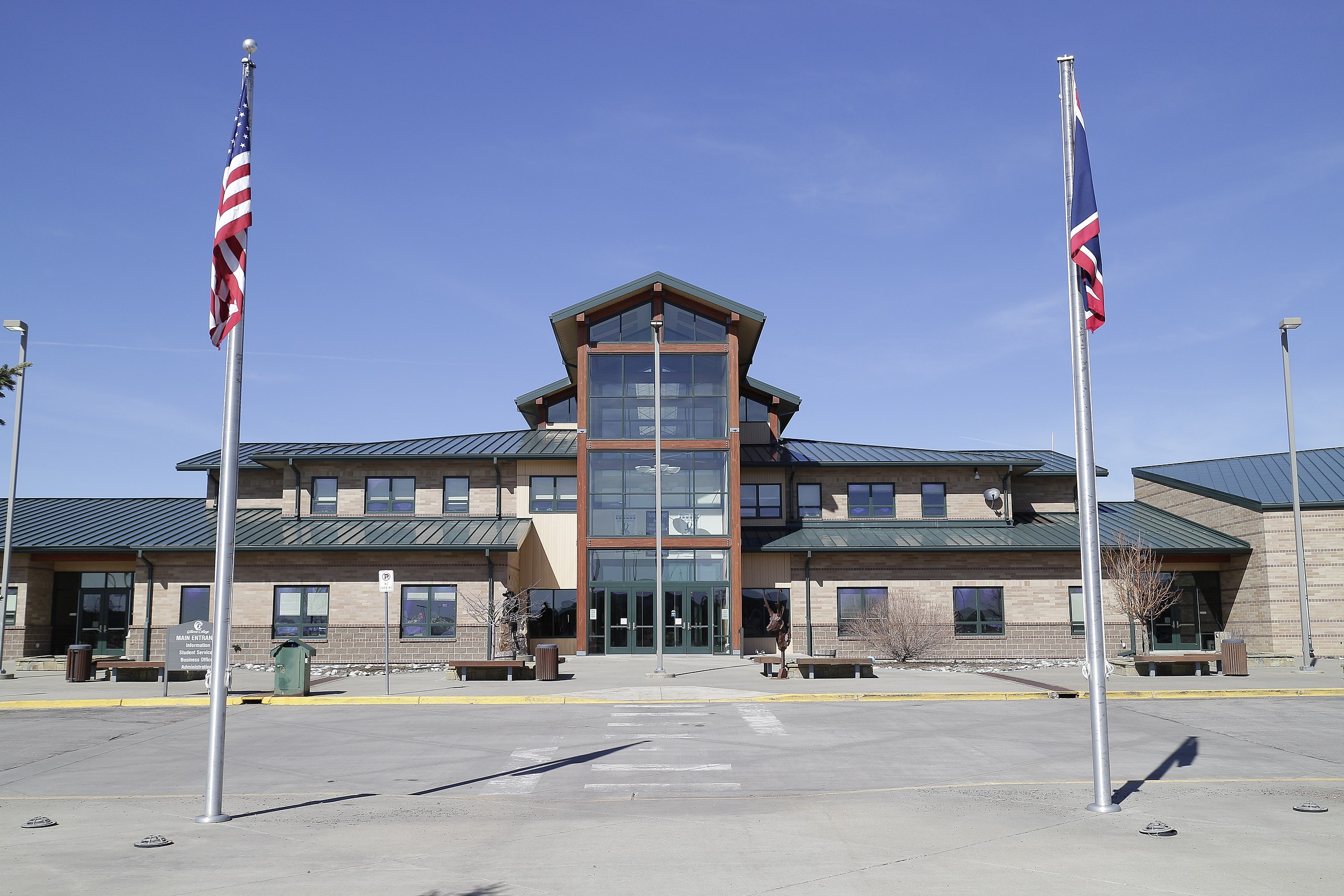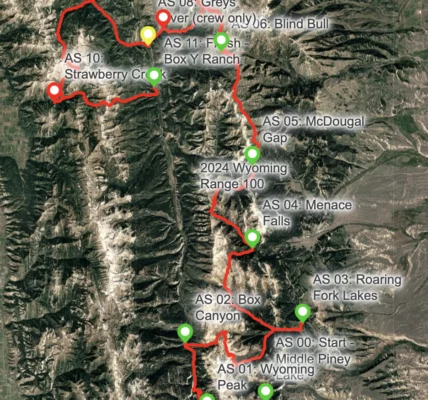
By Jonathan Gallardo
Gillette News Record
Via- Wyoming News Exchange
GILLETTE – The Gillette Community College District found itself in quite a quandary last week.
The district had expected to get a payment of about $4.6 million in mineral production taxes in November. But November came and went with no payment.
The district has received $540,000 from taxes so far, but none of it from mineral production tax.
It turns out that there was an issue with how the production taxes were distributed. The college looked to the Campbell County Commission for help. The commissioners and the college board discussed the issue at length at the county directors meeting Monday and the commissioners’ regular meeting Tuesday.
“We just need a bridge to get us to the point where we can do the things that all of our constituents have asked us to do,” said Robert Palmer, chairman of the Gillette Community College District board.
College board trustee Josh McGrath said the college district is willing to work with whatever’s easiest for the county.
Tuesday, the commissioners approved an agreement with the college district to “provide an account to withdraw monies” in an amount not to exceed $10,009,046 to help the district bridge the unexpected gap.
“If we don’t pay them and just hold all that money until next year, there will certainly be a step backwards, for the people of Campbell County and Gillette College,” said Commissioner Rusty Bell.
It passed on a 4-1 vote, with Commissioner Colleen Faber being the lone vote against it. Faber said she voted against the agreement because she didn’t have enough time to read it.
“I never saw a number or MOU until the morning of our meeting,” she said. “I didn’t have time to do enough due diligence. I can’t vote for something I just saw.”
This is not a loan, so the district won’t have to pay back the college. Instead, next fall, the county will just withhold the money that would’ve been given to the college.
“We get the funds and we won’t disburse them. It’s a pretty simple process. It’s not that we expect you to pay us back, we just won’t disburse money to you,” Commission Chairman Del Shelstad said. “By September of 2023, all of that money will be back in the coffers of the county.”
Palmer said that all of the conversations with the Department of Revenue up to this point had led the board to believe that it would receive mineral production tax this year.
The district had been in contact with the Department of Revenue ever since September 2021.
“In September we received that first letter saying you’ve attained all of your compliance issues,” Palmer said. “This was followed up by a letter in January that said your compliant. Throughout this we’ve had numerous conversations with county officials, state officials, and at no time were we ever led to believe that we would not be receiving the funding.”
Palmer added that if the board had known it wouldn’t be getting the mineral production tax until the fall of 2023, it would have addressed this during the budgeting process.
“If we had the slightest inkling that we were not going to see this revenue, that we were not going to see these funds, there’s no way in this blessed county that we would have ever approved the budget we approved,” he said.
This past June, the college board passed a $16 million budget. Of that, $11.5 million would come from the district’s mill levy.
The college board had created a budget that anticipated getting two lump sum payments, one in November and one in May, of mineral production tax. Each payment would have been about $4.6 million.
“The way we planned our budget is how we expected the mills to come in. There’s significant expense in the latter half of the fiscal year,” said Gillette College president Janell Oberlander.
The Wyoming Department of Revenue’s direction to Campbell County was to not distribute any mineral production tax to the college until the fall of 2023, Palmer said.
The Department of Revenue’s system has not been set up to handle a new district, Bell said.
“Is that bad timing? Yes. Whose fault is that? Nobody’s,” he said.
It’s not a problem unique to Campbell County.
“Laramie County is going through this with their new fire district, and they don’t have the ability to help them the way we do,” Shelstad said.
The commissioners said they hope this issue is addressed in the upcoming legislative session. If it’s not, then every time a special district is formed anywhere in Wyoming, it will run into the same problem.
Companies pay mineral production taxes based upon the mill levy of the previous year. Faber said the reason the college would not be able to receive those dollars this year is because its mill levy was not in place in 2021, but that it will start getting that monthly payment in 2023.
State law was recently changed to require companies to pay mineral production taxes on a monthly basis, rather than 18 to 24 months after the fact.
The county started receiving monthly ad valorem checks from the state in May, said Campbell County Treasurer Rachael Knust.
It’s a process that takes a few months. For example, if a company mines coal in January, it will turn in its production numbers to the Department of Revenue in February. In March, the Department of Revenue will bill the company, based on the previous year’s mill levy.
In April, the company will pay that bill to the state. And in May, the state will send a check to the county. The county then distributes the mineral production tax to districts in the county.
Each fall, reconciliation happens, where the numbers will be adjusted based on that year’s mill levies.
Mill levies are based on a county’s assessed valuation. In April of each year, the county assessor’s office receives the assessed valuation, or taxable value, of real and personal property. In June, the numbers for mineral production come in. The values are added together and certified by the state, arriving at a final assessed valuation.
Campbell County has heavily relied on mineral production. This year, 78% of the assessed valuation came from the mineral industry.
Palmer said this situation was “a perfect storm.”
“You have a brand new district, a change in legislation and a change in taxation process, and throughout the entire process, we and administration were under the understanding that we were on track,” he said.
“It’s not our fault, it’s not their fault, I’m not even sure there’s a fault to it,” Shelstad said.
There were suggestions of the county paying the college monthly, or in one lump sum. The ultimate solution that was arrived at makes everything easier from an accounting and auditing standpoint, Bell said.
“We need to know, are we a partner moving forward as we have been in the past, or not? My presumption is that we are partners,” Palmer said.
“We’re community partners in this college like everybody else,” Shelstad said. “The implications of us not doing it is going to put our college in a hardship … I’m not willing to do that.”
Because the money will be coming out of the county’s reserves, the county will be losing out on interest that it would’ve made if that money had stayed in the reserve account, Faber said.
Shelstad said although he wasn’t thrilled about taking money out of reserves, his stance on it boils down to one thing: the 2021 special election, where 70% of nearly 6,000 voters supported the creation of an independent community college district in Gillette.





